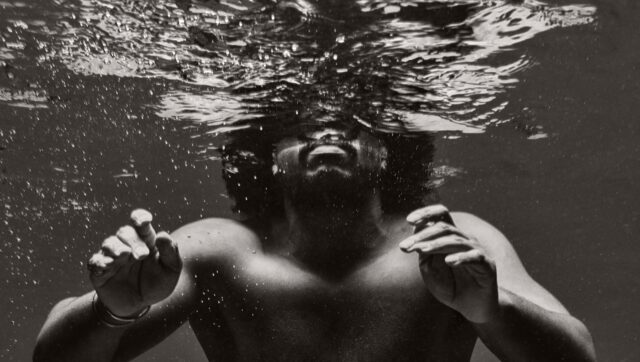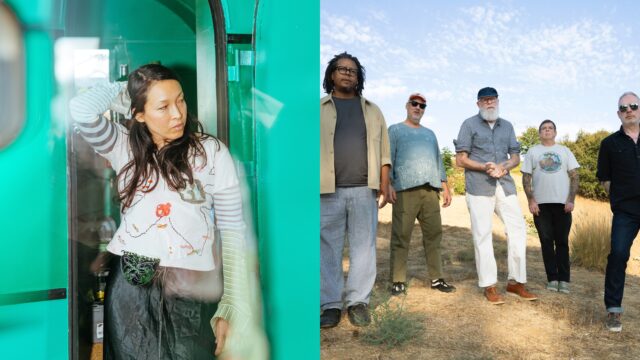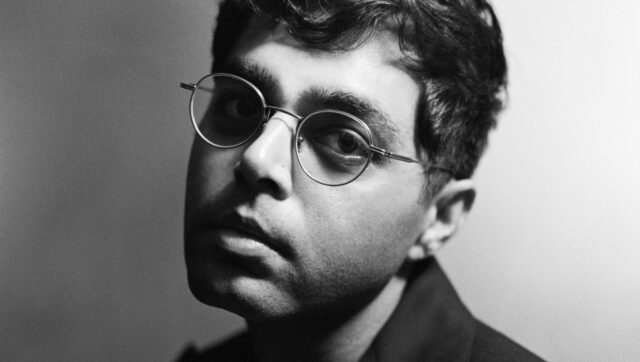André 3000 Turns 50
Now firmly in his second act as a cosmic jazz musician, the ATLien remains as original as he was in his Outkast days.
by TIDAL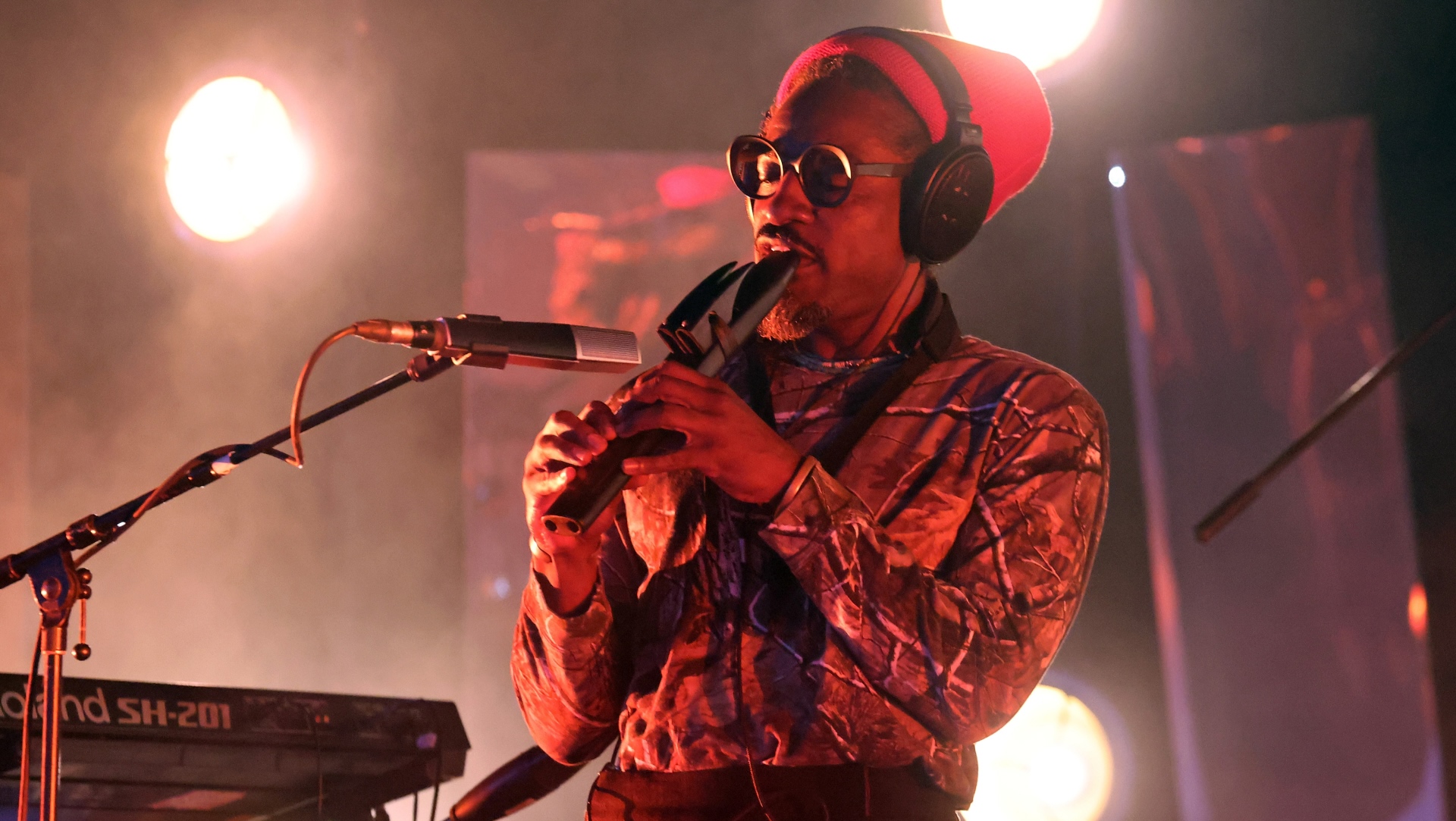
By Lang Whitaker
If there was ever a Grammy-winning hip-hop artist likely to make a late-career pivot to jazz flute, it was always André 3000.
Born in Atlanta as André Benjamin, 3000 built his reputation as half of Outkast, where he tag-teamed with Big Boi to become one of the most influential acts in hip-hop history. André turns 50 years old today, and these days he’s more like a character from a Wes Anderson film, roaming the globe playing abstract jazz while wearing a daily uniform of overalls, a knit cap and retro Nikes.
This current version of André 3000 is both totally believable and almost unbelievable, which is sort of perfect.
André and I both grew up in Atlanta and went to middle school together, although we weren’t friends. Our paths crossed more regularly a few years later, when I covered Atlanta’s urban music scene for the local alt-weekly, just as Outkast ascended from the Dungeon Family collective.
He may have been an ATLien, but as part of a hip-hop industry so dependent on tropes of masculinity and materialism, André 3000 might as well have been from outer space. Instead of rocking throwback jerseys and baggy jeans like Big Boi, André favored white wigs and fuzzy britches. As 3 Stacks noted on “Return of the G,” instead of talking about “bitches and switches and hoes and clothes and weed,” he preferred “time travelin', rhyme javelin, something mind-unraveling.”
Dre and Big Boi would eventually settle into their complementary roles and release their cornerstones, Stankonia and Speakerboxxx/The Love Below. These were followed by Idlewild, an eponymous soundtrack to a movie they dreamed up which was, in retrospect, a precursor to Sinners, a period piece blending Delta blues with jazz, hip-hop and juke joints.
Outkast split soon after, and while Big Boi soldiered on making rap albums, André seemed content just being André, although he was seemingly less grounded without the counterbalance of Big Boi. There were regular social media reports of André randomly popping up playing a wooden flute, as well as acting roles, occasional guest verses on songs and a brief Outkast reunion tour in 2014. Yet for a person who was so omnipresent for so long, André’s absence felt noticeable.
When I interviewed André for Billboard in 2016, I asked him what was next.
“Ah,” he said. “I’m trying to figure that out, man.”
The more we talked, the more he sounded stressed, I told him.
“I am, I really am,” André said. “I really am. And it didn’t get that way until about a year ago. Like, before it was like, I could tour or I’ll do something. But now I’m feeling that pressure of doing something. Feeling that pressure of something. Like I gotta get into something. I really do. I gotta get into something.”
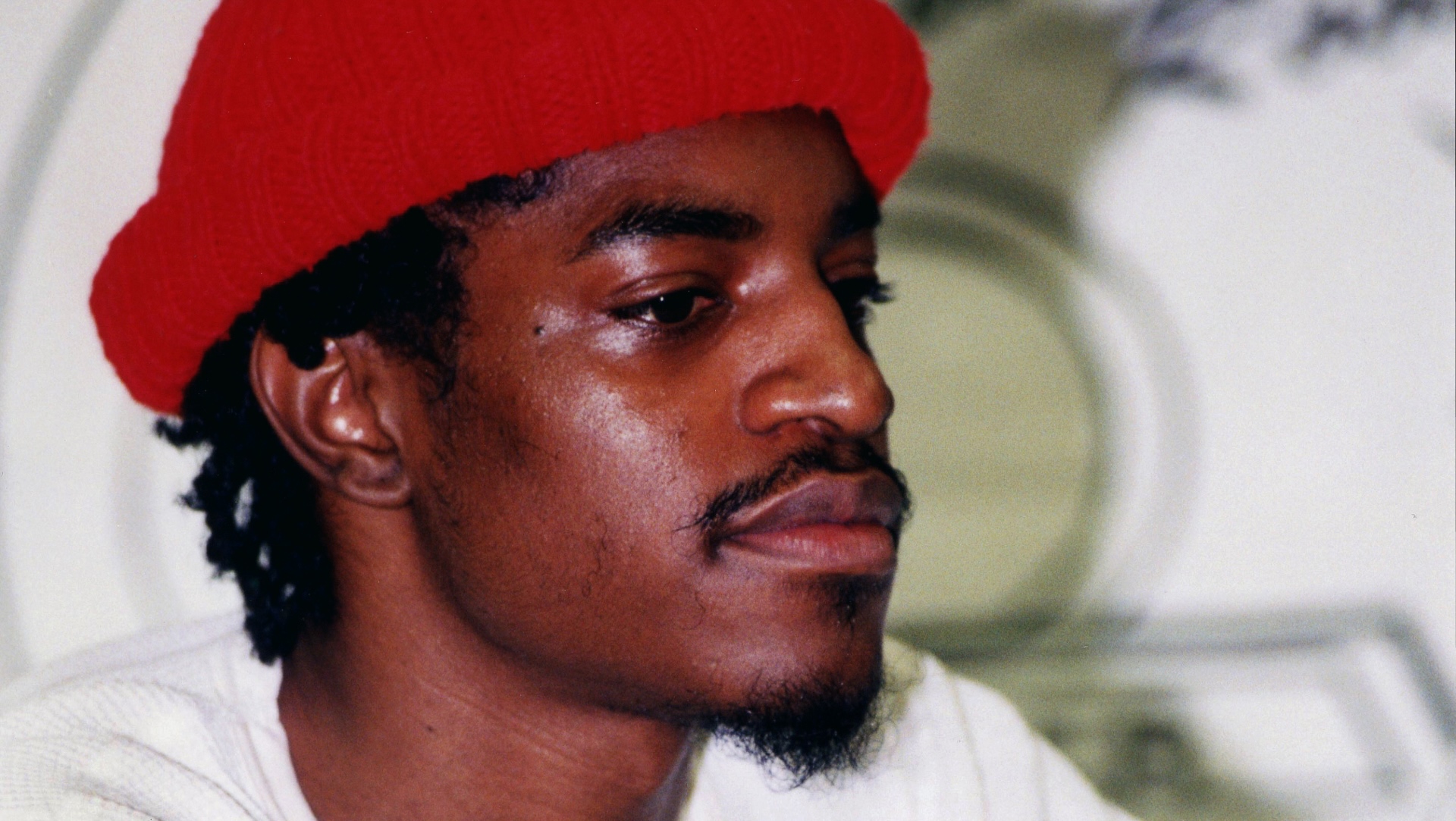
What he got into, as it turned out, was cosmic jazz music. In 2023, André released New Blue Sun, a New Age-y album featuring him on flute. He continued his jazz journey more recently with 7 piano sketches, featuring André’s solo piano noodling, which sounds similar to the background music on Mister Rogers’ Neighborhood. He celebrated the release of this album by turning up at the Met Gala with a small piano strapped to his back. For fans of André 3000 and Outkast, we have no real measure by which to judge André as a jazz artist. For all we know, New Blue Sun may be the best jazz flute album ever recorded. Upon reflection, the only other jazz flautist I can name is Ron Burgundy.
It’s sort of a miracle that these albums even exist at all. In many ways, we think of the rappers of our youth like superheroes, forever suspended in time. Many of them, from 50 Cent to Snoop Dogg, look about the same as they did in their heydays, occasionally apparating into the zeitgeist with new side hustles but eventually performing the same songs they’ve always performed, over and over and over. André hasn’t performed an Outkast song on stage now in over a decade. Remaking himself as an artist while in his late forties is, if nothing else, brave. Some might even say it’s mind-unraveling.
After all, age comes for everyone. A few weeks ago, I caught Public Enemy at a music festival, and while they sounded as powerful as ever, it was mildly jarring to realize Chuck D and Flavor Flav are now in their mid-sixties. As André journeys through middle age, gray hair pokes from the corners of his caps, and he’s talked about having to cope with the losses of his parents.
So maybe the best way to understand André at 50 is simply by respecting his originality, the same trait that made him so singular as a rapper, one who remains as implacable as ever. A few weeks ago, André was invited to speak at the commencement ceremony at Berklee College of Music. He had a warning for the students — but also, of course, some thoughtful encouragement.
“People will talk about you, good and bad,” he said. “You will feel good and bad, but none of it matters. Once you’ve done what you have to do, that’s the work. Everything else is chatter — it doesn’t contribute to what you’re doing. Always keep your original reason [for] doing music, that original feeling you got when you heard the music as a kid. Always keep the original feeling on why you’re making music.”
